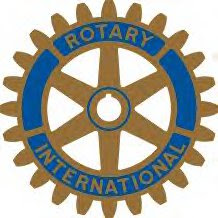
At the December 2008 Breakfast Meeting the Rotary Club of New York had two guest speakers to discuss Christan, Jewish and Muslim interaction and understanding. Jacob Bender is a documentary filmmaker and interfaith consultant is currently directing the documentary "Out of Cordoba" a portrait of the historical and contemporary importance of the Spanish philosophers Averroes the Muslim, and Moses Maimonides the Jew. Mr Binder graduated from the University of California with a degree in History of Religions, and has taught Jewish history at many synagogues around the United States. He was also the Director of the Yad Vashem Holocaust Museum in Jerusalem.
His other films include "The Voice Still Speaks: Jews and Revelation and So Goes a Nation:Lawyers and Communities"
The second speaker was Elias D. Mallon, a native New Yorker, and an ordained member of the Franciscan Friars of the Atonement (Graymoor). He obtained a degree in the Old Testament studies and a PhD in Middle Eastern Languages from Catholic University of America. He has been involved in the Roman Catholic/Christan-Muslim dialogue since 1985 and has published two books. The first was "Neighbors: Muslims in North America", and "Islam: What Catholics Need To Know". He is on the NGO Israel-Palestine Working Group and is involved in several new inter-religious peace initiatives which have recently come out of the United Nations.
Rotary is growing as fast in Islamic countries as in any other parts of the world with more than 1,000 clubs formed all across North and West Africa. In addition there are over 100 clubs in Bangladesh and Indonesia, respectively. Rotary's Polio-Plus Program has made much of this interest in Rotary possible. In addition, Rotary has formed an international committee on Muslim expansion. Rotarians believe that we are all one family.
Brother Mallon noted that there are two types of inter-religious interactions, with two different types of goals: "Inter-religious cooperation" is where various faiths are working together, but don't necessarily endeavor to understand each other. "Inter-religious dialog" which is becoming more fashionable, is where different faiths try to understand the faiths of one another, and strive to develop an appreciation for one another. Brother Mallon argued that Inter-religious cooperation is more goal oriented and each faith is encouraged to remain differentiated, and policy makers should be guided by "Better a small success that a spectacular failure".
The speakers emphasised that the world has indeed changed significantly since the 1967 Second Vatican Council. However, Inter-religious dialog did not begin then, but ther was a huge push to strengthen one's own faith and at the same time to understand the faiths of others. Vatican II sought to reconcile church teachings with modern principles, praising the advances of science and technology, democratic government, and religious toleration. Numerous non-Catholic sources praised Vatican II and it marked a major transformation in official Church teaching. The Council unambiguously stated that each individual possessed the right to choose his or her religion and practice it free from political persecution. As a result of Vatican II many non-Christian religions acknowledged that world religions (other than their own) also taught fundamental truths.
United Nation's Member States have expressed interest to engage in a new dimension and attitude toward religions as a major contributor to development and security. In 2005 the General Assembly passed a resolution calling for Interfaith Cooperation for the Peace. The Tri-Partite forum which included the Philippines, Pakistan, sixteen other States, and several UN Agencies introduced the resolution to reduce religious tensions.
In 2006 the Secretary General commissioned a high-level study group that resulted in the formation of the Alliance of Civilization aiming to reduce cross cultural polarization between Islam and the West.









